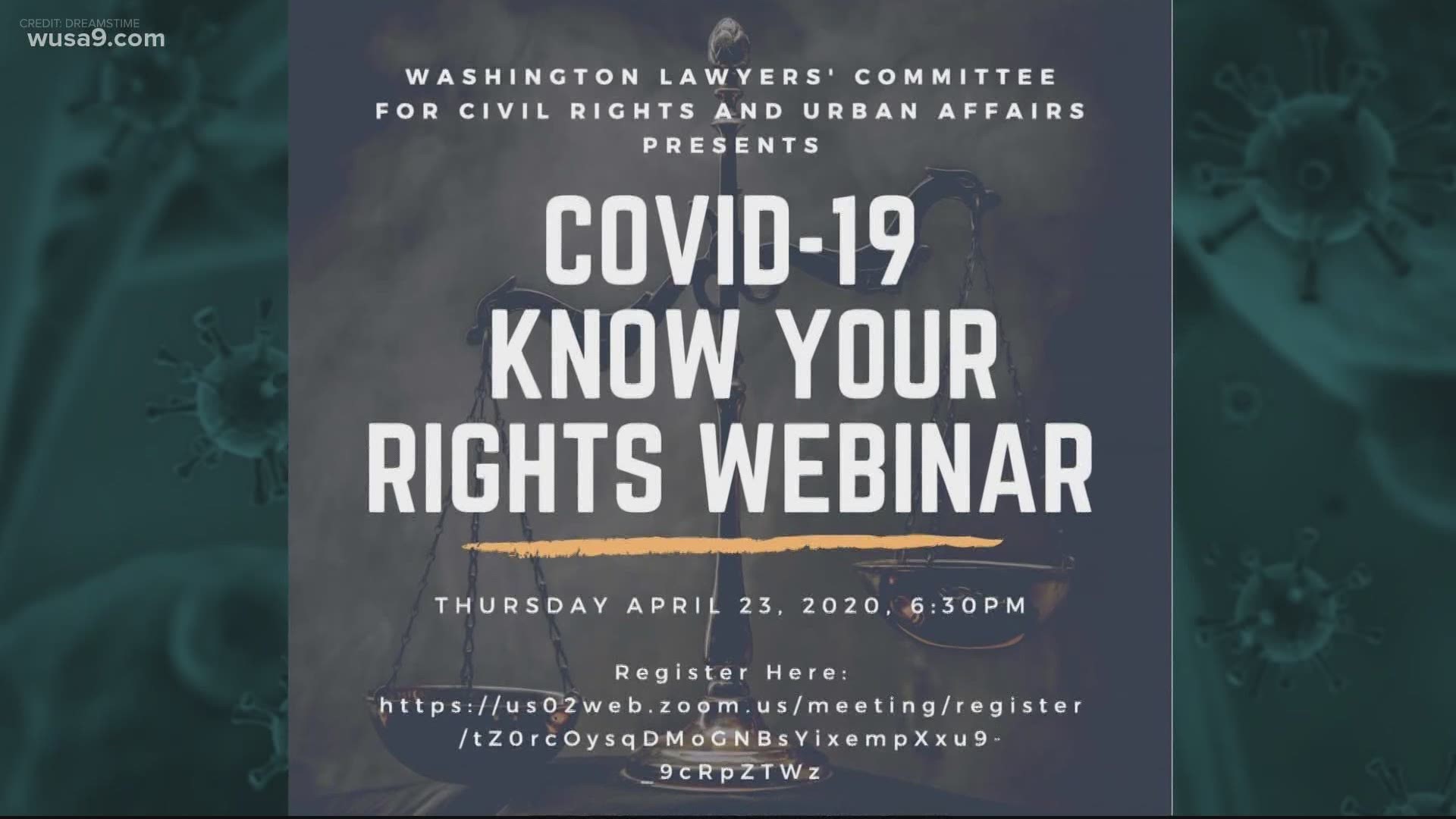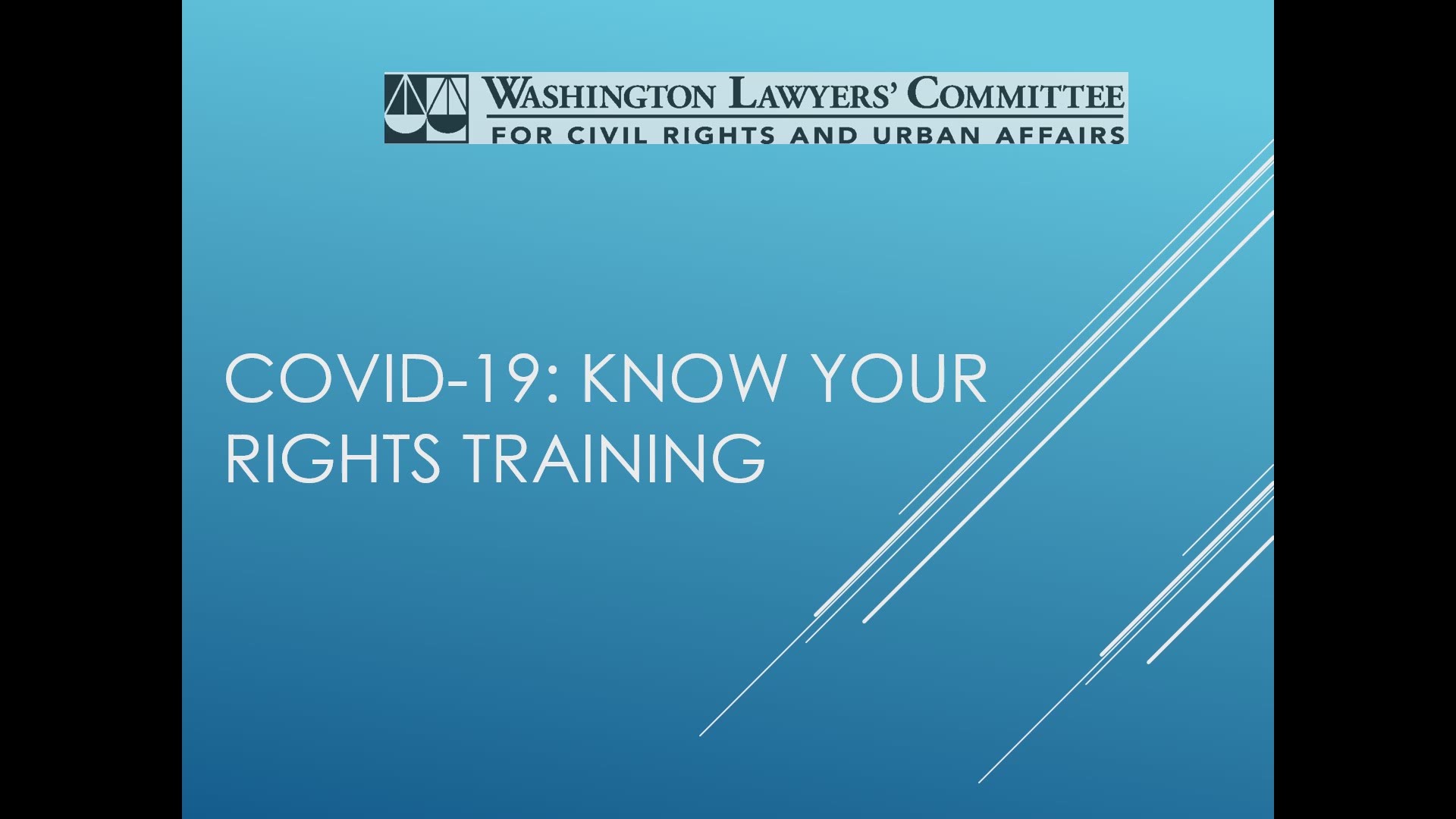WASHINGTON — The relationship between law enforcement and communities of color in America has been strained for years, and the Washington Lawyers Committee for Civil Rights and Urban Affairs said the coronavirus pandemic has caused some people in black and brown communities to have concerns.
Tristin Brown and Marques Banks hosted an online training in April to make sure people were aware of their rights during stay-at-home orders across the D.C. area.
“The idea came about to try to sway and alleviate any concerns and fears community members may have,” Brown explained.
“We’re in a situation where we are in a public health crisis, and the response to that public health crisis to enforce is now law enforcement,” Banks said. “Especially in communities that are marginalized or overpoliced -- they are going to see even more police than what they already have.”
The training covered laws in D.C., Maryland, and Virginia and how each jurisdiction is responding during the pandemic.
“For example, in Virginia, they shouldn’t have to worry about being stopped for a traffic stop essentially just for someone to ask them where they’re going because that is not classified as a Class 1 misdemeanor in the executive order,” Brown told WUSA9.
“Your constitutional rights are still in place and you have the right to assert them,” Banks added.
Banks explained the stay-at-home orders have not waived people’s fourth and fifth amendment constitutional rights to be free from unreasonable searches and to remain silent when encountering law enforcement.
“It is more common for people of color to have to come in contact with law enforcement,” Brown said. “While we understand that the main objective here, particularly within this pandemic, is to make sure we are optimizing good public health, we want to make sure this is not an opportunity for law enforcement officials to trample on the constitutional rights of communities of color.”
The Washington Lawyers Committee has sent freedom of information act (FOIA) requests to police departments across the DMV to monitor police interactions since the pandemic started.
While the organization has not found any issues, Brown and Banks said the training was about being proactive and making sure people are informed.


